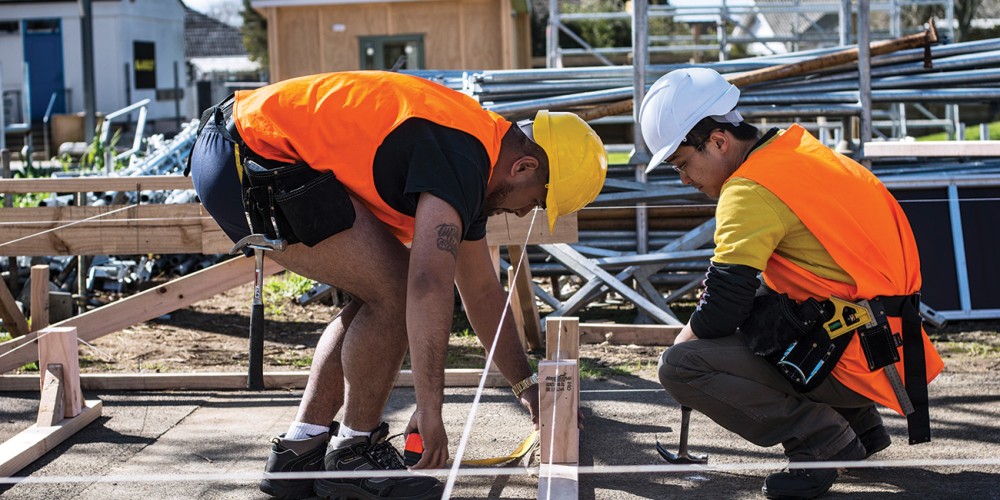A more effective model of support for Māori Level 4 Carpentry apprentices – reducing the time it takes to get qualified
Using kaupapa Māori interventions, this project was targeted at improving the support and delivery of carpentry apprenticeships for Māori, thereby increasing the number of qualified Māori builders

The issue
In the Te Pūkenga – Whitireia WeTec context, Kaupapa Māori informed support is provided to ākonga Māori to complete their pre-trade Carpentry qualification resulting in equity levels of achievement for these ākonga. However, upon transitioning to the qualifying level of the Carpentry qualification, the level of support provided has not resulted in ākonga Māori becoming qualified to levels needed by whānau, hapū, and iwi Māori.
Project outcomes
- Webinar video
- He Arotakenga Mātākōrero: Literature Review
- Full report: He Ruku Hohonu / Reduce qualifying time for Māori Level 4 Carpentry Apprentices
Caveat/Note:
The interventions are framed within kaupapa Māori, which is more likely to be effective with ākonga Māori. It is research carried out by Kairangahau Māori for the direct benefit of ākonga Māori and their whānau.
Project Status: Complete
Contract Research Organisation: Te Pūkenga – Whitireia WeTec
Related projects

Active Bystanders – Kaupapa Māori research project
Developing a Kaupapa Māori Theory of Change to inform effective bystander interventions for wahine Māori

Supporting technical experts to become work-based trainers
Developing and trialing tools and resources that support work-based trainers to improve their practice
Degree-level apprenticeship (DLA) comparative pilot
Degree-level apprenticeship pilots
The place of micro-credentials in New Zealand
The place of micro-credentials in New Zealand
Investigating training advisors in work-based learning in the construction and infrastructure sectors
Analysing systemic forces for workforce development alongside

Workforce journey indicators data dashboard
A data project to understand how people navigate in and out of the construction workforce
Where is the front door? An investigation into the workforce entry points within the Construction and Infrastructure sector
Mapping the multiple entry points into the construction and infrastructure sectors
Framework for Māori in high-skill roles
Understanding skills shortages experienced by Māori firms to support Māori into high-skill roles

From skilled industry practitioner to Kaiako
Analysing the current kaiako training to identify effective practices in classroom-based tertiary education
Women’s experiences working in Construction and Infrastructure
Women’s experiences working in Construction and Infrastructure
Skill standards
Good Practice in the Development and Implementation of Skill Standards-Based Qualifications
Neurodiversity
Neurodiversity
Future workforce skills for Māori and Pasifika owned businesses in construction
Industry Analysis